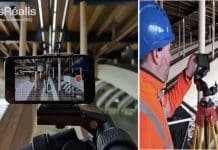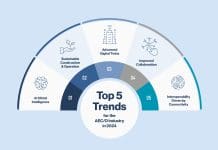Blockchain provider Finboot looks at how emerging tech can play a role in validating and standardising ESG in construction
Standardising ESG in construction (Environmental, Social and Governance) requires hard data, not soft objectives. A positive step forward is the UN’s recent launch of the High Level Expert Group on the Net-Zero Emissions Commitments of Non-State Entities,” which aims to “develop stronger and clearer standards for net-zero emissions pledges by non-State entities – including businesses, investors, cities and regions – and speed up their implementation.”
Empowering ESG in construction requires Trust. This is a core principle of Blockchain along with its immutability and accountability characteristics. It accurately records activity along a supply chain, which can then be assessed for compliance and shared to validate construction ESG claims.
Over time, Blockchain could become the single source of truth in proving construction ESG practices. It’s not uncommon for materials in the construction industry to be part of large networks, and the bigger they get, the greater the collective value that can be derived from data sharing – and all the more important it is for the movement of goods within the construction industry to be recorded and traceable.
This “digital passport” provides the information required to accurately assess the condition of the asset, its provenance and therefore its insurance value. It also contains its use, implementation and date, warranty and any live updates.
When the construction process is complete, post-inspected and appropriately commissioned and signed off, the digital passport holds all information, proof and validation – and can move between owners of a building.
How do you ensure real time compliance and quality control?
Many organisations in the construction industry operate within complex supply and value chains spanning multiple geographies. Each stakeholder has varying levels of digitalisation in its operations. Joining each stakeholder can be challenging but that is what is required.
The type of data differs at each step of the chain and this is further challenged as different actors operate at different levels of digitalisation. One solution is to standardise the data formats and what needs to be made transparent. Connecting the components while preserving the integrity of the data requires Blockchain.
Blockchain is part of the journey towards industry 4.0 where we have significant automation of our supply chains driven by IoT, Machine Learning and AI which are built on Blockchain database foundation.

















